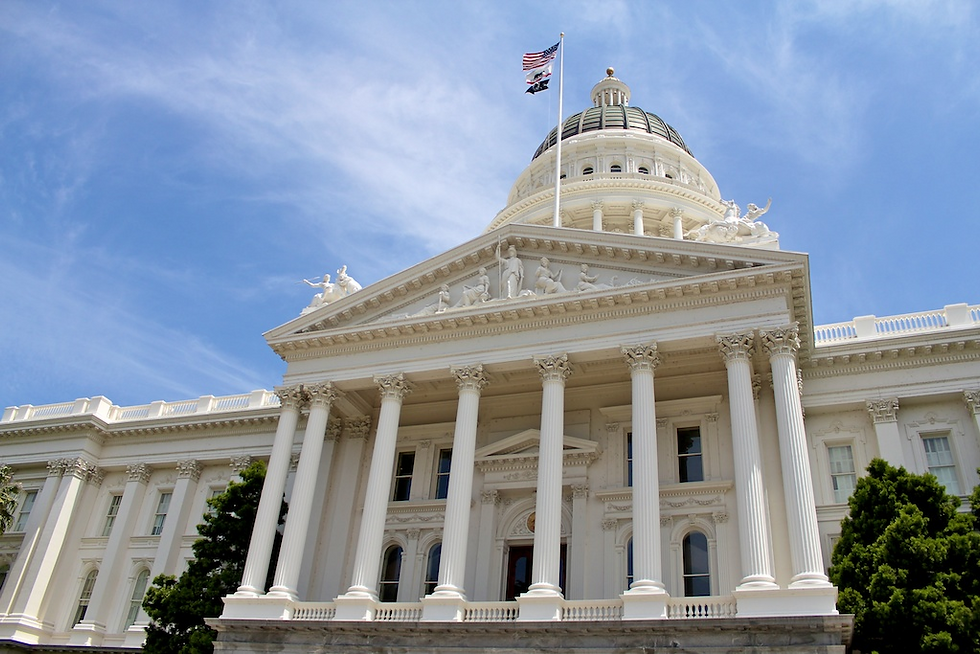Bills, Bills, Bills - How Recent Statewide Legislation Impacts the Lives of WVCS Clients
- Sydney Schoeller & Kylie Clark
- Nov 15, 2022
- 3 min read

The 2022 California legislative session, which closed on September 21st, led to the passage of 997 new bills that made it through both the Assembly and Senate and were signed by the Governor. Of these bills, many will impact West Valley Community Services and the individuals and families we serve. Some of the most notable bills were related to housing, health and reproductive rights, and workplace issues. Here is a summary of some of the legislative wins in the last session:
Housing
SB 886 allows for housing developments built on the campuses of California State Universities and community colleges to be exempt from the procedural requirements of the California Environmental Quality Act (CEQA), a lengthy multi-step process subject to appeals and lawsuits, leading to increased production costs and delays. As a result, housing for students and faculty on university campuses will be built more quickly.
AB 2097 prevents government entities from imposing parking requirements on housing and commercial developments within half a mile of major public transportation sites. This means that buildings located near areas of major public transportation sites will no longer face requirements to build a minimum amount of parking, significantly reducing the cost of new housing developments.
AB 2011 aims to lower the barrier posed by the permit approval process for some affordable housing developments by allowing ministerial, by-right approval for affordable housing on commercially-zoned land, as well as approvals for mixed-income housing along commercial corridors.
Health and Reproductive Rights
AB 2223 expands protections against the prosecution of abortions and miscarriages, while also providing protections for out-of-state women who travel to California to receive an abortion. With low-income individuals being more susceptible to pregnancy complications and costs, and WVCS serving many women and families each year, this bill is bound to impact the folks we serve.
AB 2098 expands the Medical Board of California’s definition of “unprofessional conduct” to include the dissemination of misinformation or disinformation related to COVID-19, often directed at people living in poverty or experiencing homelessness. This bill also makes it easier for the Medical Board to discipline physicians who spread incorrect information.
SB 1338 creates a new civil court system to evaluate and require treatment for Californians suffering from addiction and severe mental illness. Aimed toward providing expanded health care services for unhoused individuals, SB 1338 represents an alternative to our current system of helping unhoused individuals, which cycles people through jail followed by hospital stays, often returning to homelessness ultimately.
Workplace Issues
AB 2183 creates two new ways for agricultural farm workers to unionize, while also enabling farmworkers to now vote by mail. California has the largest state population of farmworkers, and AB 2183 removes some of the barriers to organizing, allowing farmworkers to more easily seek better wages, benefits, and working conditions.
SB 1162 expands pay transparency by requiring companies with more than 15 employees to report pay data for their employees and contractor workforce. This will enable WVCS clients to make better use of their time when applying to jobs and will reduce pay discrimination.
There were also some significant bills that did not make it through the legislature - including the following:
SB 1341 would have created a pilot guaranteed income program for 15,000 homeless graduating high school seniors, who would have received $1,000 per month in assistance.
AB 2847 would have created a one-year program to provide unemployment benefits for undocumented individuals, allowing undocumented individuals who performed work in California but are now unemployed to receive $300 each week in unemployment pay. The bill was vetoed by Governor Newsom in September 2022, after it passed in both the State Senate and Assembly.
SB 866 would have allowed individuals ages 12 to 17 to receive vaccines, including for COVID-19, without parental consent or knowledge. California law already gives minors the autonomy and authority to receive a wide variety of healthcare treatments, such as the Human Papillomavirus (HPV) vaccine, drug and alcohol-related disorders, and mental health disorders. By expanding this access to include vaccines, SB 866 would have drastically expanded healthcare accessibility for individuals throughout the west valley and state.
WVCS believes in the power of public voice to advocate for change, as we organize alongside clients, folks with lived experience, staff, board and community members to advance legislation that improves the quality of life for our clients and all community residents. Even though the legislative session has ended, we will continue to work to address the issues that matter most to our clients, as we aim to realize our vision of a community where every person has food on the table and every person has a roof over their head.
.png)








Comments